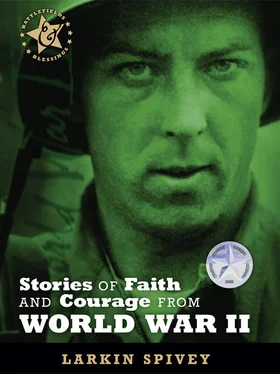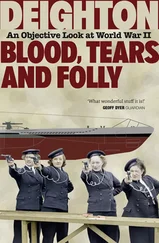In the spring of 1947 he met an old acquaintance, Sublieutenant Kazuo Kanegasaki, who had been a survivor of the aircraft carrier Hiryu’s sinking during the Battle of Midway. Kanegasaki had eventually been held in a Colorado POW camp. He told Fuchida the remarkable story of an eighteen-year-old American girl named Margaret Covell who came to the camp as a volunteer worker.
Over time, Covell’s unusual compassion aroused the curiosity of the prisoners. One of them asked her, “Why are you so kind to us?” She answered,“Because Japanese soldiers killed my parents.” 66As the prisoners stared at her in astonishment, she explained that her parents were missionaries before the war at a mission school in Yokohama. When she learned they had been arrested and beheaded, she was choked with hatred at first. But gradually, she became convinced in her heart that her parents would have forgiven her captors. Could she do less? As a sign of her sincerity, she volunteered to serve the Japanese prisoners.
On hearing this story, Fuchida was thunderstruck. The concept of forgiveness was foreign to his “code.” A teenaged American girl seemed to have an answer to the problem of hatred and suspicion in the world. Fuchida knew that such towering goodness could not have a human source. He wondered, “Where did this great love come from this love that could forgive enemies their cruelest deeds?” 67
Be kind and compassionate to one another, forgiving each other, just as in Christ God forgave you.
—Ephesians 4:32
February 17
The Second Day to Remember
As he was passing through a train station in early October 1948, a stranger handed Mitsuo Fuchida a pamphlet entitled “I Was a Prisoner of Japan,” by Jacob DeShazer. The story of the American airman’s ordeal and life-changing experience greatly affected the Japanese airman. The parallel between DeShazer’s experience and that of Margaret Covell was amazing. Here was another story of love overcoming hatred, only from a more convincing source. DeShazer was a fellow warrior who had suffered even more than he had because of war. Fuchida purchased a Bible, not to pursue Christianity, but to better understand someone like DeShazer. Fuchida reflected:
His story… was something I could not explain. Neither could I forget it. The peaceful motivation I had read about was exactly what I was seeking. Since the American had found it in the Bible, I decided to purchase one myself, despite my traditionally Buddhist heritage. I read this book eagerly. I came to the climactic drama—the Crucifixion. I read in Luke 23:34 the prayer of Jesus Christ at His death… I was impressed that I was certainly one of those for whom He had prayed. Right at that moment I seemed to meet Jesus for the first time. That date, April 14, 1950—became the second “day to remember” of my life. On that day, I became a new person. 68
Fuchida’s life did not become easier because of his conversion. Many of his countrymen accused him of currying favor with the occupation forces. Despite such criticism he joined a Christian evangelical group dedicated to spreading the gospel. Instead of growing bitter and resigned to the cynical attitudes of his fellow countrymen, he spoke boldly before large audiences in Japan and America and, through his faithful service, influenced countless others to meet Jesus for the first time.
Father, forgive them, for they do not know what they are doing.
—Luke 23:34
Forgive as the Lord forgave you.
—Colossians 3:13
February 18
The Miracle before the Battle
In May 1942 the USS Yorktown represented one-third of American combat power in the Pacific. Unfortunately, she was severely damaged early in May at the Battle of the Coral Sea. Two bombs had ruptured fuel tanks and damaged the hull. Worse still, an eight-hundred-pound bomb had penetrated three decks and exploded deep within the ship. In addition to massive casualties, whole compartments were wiped out, bulkheads were warped, and large areas were charred by fire. Many of the casualties were incurred fighting the widespread fires and keeping the ship afloat.
On May 27 the crippled Yorktown arrived in Pearl Harbor and slid into Dry Dock Number 1. One admiral estimated the time needed for repairs as ninety days. The Navy Yard inspectors thought it possible to get her back to sea in two weeks. Admiral Nimitz, aware of the impending showdown at Midway, had the final say. He wanted the Yorktown ready to fight in three days! One historian notes:
Overnight, more than 1400 workers swarmed aboard the stricken ship. Civilian contractors and Navy technicians dragged miles of electrical cable. Other men on scaffolds patched the hull. Steel plates were dropped over the holes in the deck…acetylene torches burned everywhere. The work on the Yorktown had become one of the most intensive repair jobs the Navy had undertaken. The requirement for electricity alone became so great that districts in Honolulu endured shortages so that the yard could get the extra power it needed. 69
Over the next three days the “impossible” was accomplished. The Yorktown put to sea on May 30 to play her vital role in the Battle of Midway. This story inspires us to raise our expectations of what dedicated people with a mission can accomplish. We can expect the “impossible” in God’s service. The saying goes, “God doesn’t call the qualified. He qualifies those he calls.” All we need are willing hearts and unlimited expectations.
Then Jesus came to them and said, “All authority in heaven and on earth has been given to me. Therefore go and make disciples of all nations, baptizing them in the name of the Father and of the Son and of the Holy Spirit, and teaching them to obey everything I have commanded you.
—Matthew 28:18–20
February 19
This War Is Over

Before the start of World War II Cdr. John Ford organized the Field Photographic Branch of the Office of Strategic Services. Sent to Pearl Harbor in January 1942, he later found himself on Midway Island to record events during the looming battle. He was assigned to the top of one of the prominent buildings on the island to report on enemy aircraft and to take pictures. He was later cited for his actions during the battle. Commander Ford had an insightful observation about the young men who had been around him:
The Marines with me—I took one look at them and I said, “Well this war was won.” They were kids, oh, I would say from 18 to 22, none of them were older. They were the calmest people I have ever seen. I have never seen a greater exhibition of courage and coolness under fire in my life and I have seen some in my day. Those kids were really remarkable, and as I said before, I figured “Well, this war is over, at least we are going to win it if we have kids like that.” 70
Young people are often associated with a lack of life experience and a corresponding lack of wisdom. Yet youth also goes hand in hand with idealism and courage in every arena, as evidenced by the young Marines whom this officer observed on Midway Island. The apostle Paul charged Timothy to ignore any criticism of his youth and to set an example for all generations in the way he lived his life for the Lord. No matter our age, we are never too young or too old to make a difference in the world around us, and to bring glory to Christ in so doing. (JG)
Don’t let anyone look down on you because you are young, but set an example for the believers in speech, in life, in love, in faith and in purity.
—1 Timothy 4:12
Читать дальше













